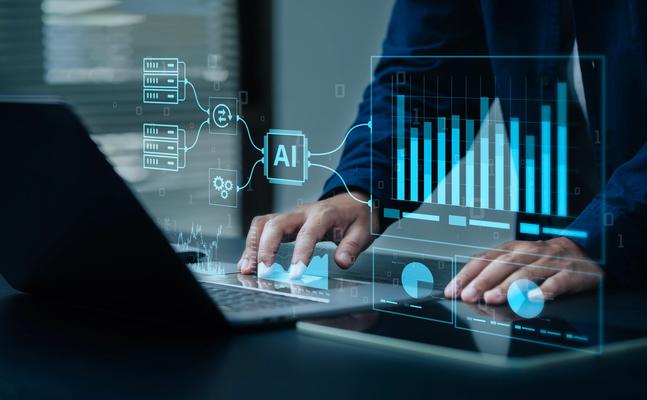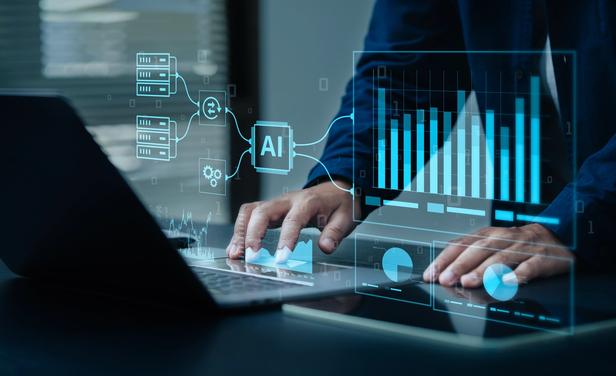Subscribe to our newsletter
Key Takeaways
AI is already in multifamily: Artificial Intelligence is actively transforming leasing, property management and resident experiences, making it essential for operators to adapt.
AI simplifies complex tasks: Key AI types like machine learning, natural language processing and predictive analytics help teams automate workflows, improve decision-making and boost efficiency.
Practical applications span operations: AI is enhancing lead qualification, automating maintenance predictions, personalizing resident interactions and streamlining communications.
Start small and scale: Operators can effectively implement AI by identifying pain points, piloting specific use cases and training their teams, rather than attempting an overnight overhaul.
Ethical considerations are crucial: Responsible AI adoption requires attention to data privacy, transparency with users and ensuring fairness to prevent unintentional biases.
Smart technology enables AI: Smart property tech seamlessly integrates AI capabilities into existing workflows, delivering practical value for residents, staff and the bottom line.
In 2025, Artificial Intelligence (AI) isn’t a futuristic idea, it’s already reshaping how multifamily properties are leased, managed and experienced. For operators, that means one thing: adapt or risk falling behind.
AI is helping multifamily teams streamline leasing, personalize resident engagement and anticipate maintenance needs before they become problems. Yet despite its impact, many operators still view AI as either too complex or out of reach.
This guide breaks it down—no jargon, no hype. You don’t need to be a data scientist to understand how AI fits into your workflows or how it can help drive real results. Here’s what you need to know.

What exactly is AI?
AI refers to computer systems that simulate aspects of human intelligence, such as learning from patterns, making decisions or automating tasks. In the multifamily world, the most relevant types of AI include:
Machine learning, which uses historical data to make predictions (like identifying which leads are most likely to convert or which equipment is at risk of failure)
Natural language processing (NLP), which powers leasing assistants and chatbots that understand and respond to human speech
Predictive analytics, which anticipates maintenance needs, resident behavior or market trends
Together, these tools help operators work more efficiently, improve the resident experience and reduce operational costs.
Where AI is already making an impact
AI is already embedded in everyday multifamily operations, from prospecting to maintenance to communication.
In leasing, AI-powered chatbots and digital assistants are handling inquiries, qualifying leads and scheduling tours around the clock. Lead scoring tools help teams focus on high-intent prospects, while automation tools assist renters with applications and FAQs.
In property management, predictive models flag equipment issues before breakdowns occur. AI can also help automate HVAC, lighting, and access systems, while maintenance platforms prioritize work orders based on urgency, location and resident impact.
On the resident side, AI is personalizing service through features like smart access that adapts to user habits, energy-saving tips based on behavior and automated updates on service requests and events.

How to start with AI in multifamily operations
You don’t have to overhaul everything overnight. Start small and scale thoughtfully. Here’s a strategic approach:
Begin by identifying your biggest pain points. Are you losing leads due to slow follow-up? Dealing with repeated maintenance issues? These are prime areas for AI to help.
Once you’ve identified a need, choose one or two use cases to pilot, such as implementing a leasing chatbot or adding predictive maintenance tools. From there, you can expand as your team grows more comfortable.
Equally important: Train your team. AI works best when users understand its purpose and functionality. Take time to introduce new tools, explain their benefits and normalize their use.
Before adopting any AI tool, ask questions like:
What specific problem does it solve?
How does it integrate with your current systems?
Will both staff and residents use it consistently?
What training and support does the provider offer?
Ethical AI: What operators need to know
With great power comes great responsibility. As AI becomes more embedded in multifamily workflows, ethical considerations become more important.
Data privacy: AI often relies on sensitive resident or building data. Operators need to ensure proper data governance and transparent policies.
Transparency: Residents and staff should know when they’re interacting with AI—and they should understand how their information is used.
Fairness and bias: AI tools must be regularly audited to prevent unintentional bias, especially in leasing or service prioritization.

How smart tech supports AI-powered operations
AI isn’t just about futuristic features. It’s about practical tools that make day-to-day operations smarter and more efficient.
Whether you’re automating lead follow-up, optimizing energy usage or improving work order prioritization, AI supports better outcomes for residents, teams and bottom lines.
The key is selecting solutions that embed intelligence into familiar workflows—tools that offer real value without overcomplicating your tech stack.
The future is here now
AI isn’t around the corner, it’s already in your inbox, on your dashboards and in your workflows. Operators who embrace it today will gain the edge tomorrow.
With the right approach, AI doesn’t just make operations faster. It makes them smarter, more consistent and more resilient.
Ready to see how SmartRent can help you unlock AI-powered operations in your portfolio? Schedule a demo today to get started.

